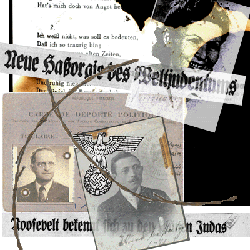| |
| |
|
Hampshire
College Social Science 276
Tues., Thurs. 2:00-3:20
FPH 101
Mt. Holyoke History 240
Tues., Thurs., 11:00-12:15
Kendade 305
spring 2003
|
 |
| The
Shoah (Hebrew; lit.: devastation), or Nazi attempt to
exterminate the Jews of Europe, has entered popular consciousness
and the curriculum, and yet most of us still know very
little about it. Images and emotions outweigh knowledge.
For example, although the death camps have justifiably
become the most potent symbol of the process, the fact
remains that they accounted for just over half of the
victims. And although many people have chosen to find
religious, philosophical, or political meaning in the
destruction, it in fact contains no intrinsic, much less
consoling, message. Only by contemplating that grim abyss
can we hope to come to terms with the events and their
significance. By anchoring the Shoah solidly in history,
this course attempts to strike a fine balance: It proceeds
from the belief that the losses cannot be understood unless
we examine the world that was lost. It addresses the roles
of victims, perpetrators, and bystanders. It locates the
Shoah in the spectrum of relations between Jews and non-Jews
without portraying it as inevitable. It emphasizes the
uniqueness of the Jewish tragedy, while examining similar
cases and universal implications. |
|
|
|
|